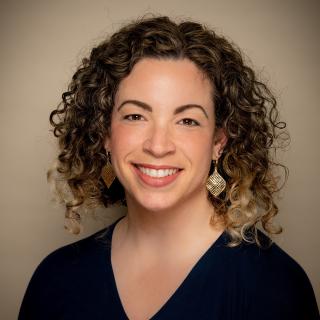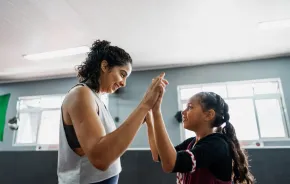Rob McKenna, the Republican candidate for Washington state governor, is serving his second term as Washington’s 17th attorney general. As the state’s chief legal officer, he directs approximately 470 attorneys and 680 professional staff providing legal services to state agencies, the governor and the Legislature. He has won all three of the cases he’s argued before the U.S. Supreme Court, defending voter-adopted laws on campaign finance reform, the top-two primary election system and the state public records law. McKenna, his wife, Marilyn, and their four children live in Bellevue.
 Who is your political hero?
Who is your political hero?
I’m a total Lincoln-phile. I just find him incredibly inspirational. I mean here's a guy who just suffered setback after setback. His mother died when he was young … he tried to be a farmer, he tried to be a storekeeper, he failed at that. He wanted to be in politics and he got elected to Congress but was so unpopular he couldn't even run for a second term … What's important though is that he learned a lot. He learned to persevere. He never gave up. And then he found something he was good at, and it was law. He had basically 18 months as president … the most pivotal 18 months of our country’s history. The country never faced a more moral threat to its existence; there were so many people in the north who wanted to let the south go, but Lincoln refused to give up on the Union. And because he persevered we have the country we do today. He did the right thing even though it was unpopular, at enormous personal sacrifice.
Your opponent supports same-sex marriage; you do not.
I support the law we have on the books today, which allows legal rights for domestic partners.
We have Referendum 74 on the November ballot. If Washingtonians support same-sex marriage, will you change your position?
I’ll execute the law and uphold it. Once the voters make up their minds, it’s decided. It's the kind of issue that every voter is able to decide for herself or himself … It's perfectly suited for the ballot, it's not a complicated policy matter, it's what do you feel, and once the voters have decided it we go forward from there as far as I'm concerned.
Washington has been fighting a multiyear battle on the issue of easy access to emergency contraceptives. Your office has represented the state against pharmacists who don’t want to provide them. Where do you stand personally?
I think women should have access to emergency contraception in every pharmacy.
Where do you stand on the legalization of marijuana for recreational use in Washington?
I’m opposed to it, while supporting the availability of marijuana for therapeutic or medical reasons.
What are your main change points on education?
My wife and I are heavily invested in public schools. We’ve been in the public schools since 1993 and will be until 2018. I’ve been a volunteer for Bellevue public schools, Mercer Island public schools and Renton public schools. Public education is the most important thing the state does … and we’re not doing an adequate job.
We need to pay our greatest teachers more because they're great and because they work at the most challenging schools. We need to eliminate “last in, first out,” which means our most junior teachers are always at most peril for being laid off. We need to connect the evaluation of a teacher’s performance to the progress students are making.
We also need to give every teacher a great school principal who is not just an administrator but is actually there as the instructional leader. You need principals to be spending 30 to 40 percent of their time in the classroom as mentors, helping professional development, and assuring effectiveness. When you combine that with pay-for-performance, and when you combine that with pay being linked to student progress, you create incentives to keep your greatest teachers working in the most challenging schools, and then you've got something. You've got reform that is based on a fair system which is broad in its evaluations and counts all the factors it needs to count.
We have to put funding for schools first, and we also have to restore funding to higher education. After 28 years of one-party rule in the governor's office, where do we find ourselves? Under court order to adequately fund our schools. We have to put funding for schools first, and we also have to restore funding to higher education which has been eliminated, because we're pricing the middle class out of college educations.
So you believe we can have these investments in education without growing the budget?
No, the budget’s going to grow. In fact, the governor’s office forecasts that revenues are going to grow 36 percent in the next eight years. That’s $11.3 billion in tax revenues we don’t have today.
What I want to do is cap the growth rate of non-education spending at 6 percent biennial
and take revenue growth above that 6 percent and put it all into education, both K–12 and higher ed. We’ll fund full-day kindergarten for all children. We’ll fund the cost of keeping school buildings open, so we can bring nonprofits in after school. We’ll fund a longer school year, particularly for kids at risk.
We need to expand early learning. We've got 19,500 poor children who can't get into ECEAP or Head Start, 19,500 kids who are going to come into kindergarten without any preschool. And they're going to be behind, and some of them will never catch up. One of the things going on in Olympia today is that things are so bad and yet there's no sense of outrage.
When we came in at the bottom in President Obama’s Race to the Top competition, which I thought was really a smart approach to providing federal funding, did you hear cries of outrage? Absolutely not. The adults are all covering for each other in the system. We have a system that seems more oriented toward the needs of the grownups than the kids. So we're going to put kids first even if that makes adults uncomfortable.
What is your position on charter schools?
I support allowing charter schools into our state. We have to be careful that we don’t see them as some sort of panacea … but they ought to be one of the tools in our tool box. Forty-one states allow them … we're the only large state which doesn't allow any charter schools. I think that parents, particularly parents of children who are poor, who are in schools that are underperforming, ought to have options too.
How would you improve Washington’s economy?
The key is to provide more family-wage jobs, and that means job creation in the for-profit and the nonprofit sectors. We're not going to reduce high unemployment through state government hiring, as my opponent proposes. But what will work is to get our state off of the Top 10 list for most expensive states in America in which to employ people. We have some of the highest regulatory costs. We have a gross receipts tax that punishes small business, especially new startups. We have some of the highest unemployment insurance costs and some of the highest workers’ comp costs in the country. We don't have to be the cheapest state but we can't afford to be the most expensive either.
So how would you spur job creation?
By reducing regulatory burdens and increasing certainty for employers. By providing some B&O tax relief for the smallest companies. By lowering the cost of workers’ comp and UI [unemployment insurance]. We're going to make it cheaper for employers to hire people and keep them employed. And the long-term strategy is to provide the workforce they need.
This question comes from one of our readers: How do you plan to keep our state universities and colleges affordable? The current tuition hikes are unsustainable for families.
They’re completely unsustainable. Tuition nearly doubled in the last six years. So we're going to cap non-education spending growth in the budget at six percent biennial and we're going to take the excess and put it into K-12 and higher education. What we're shooting for is what I call the 50-50 deal, where 50 percent of the cost of undergraduate education will be covered by the state budget and 50 percent by tuition. In the eighties and early nineties it was 75 percent of the state budget, 25 percent tuition … today it's the other way around, roughly 75 percent tuition, 25 percent state.
Another reader question: How do you feel about breastfeeding in public?
[Chuckling] I personally prefer to put a blanket over myself. But I’m comfortable with breastfeeding in public, and when I’ve observed moms who are breastfeeding they’re appropriate and discreet, and breastfeeding is hugely valuable and important to the child. My wife and I both think the more moms who can be taught how to breastfeed effectively and use it, the better.
Editor's Note: We also invite you to read our Someone You Should Know Q & A with Washington's Democrat candidate for governor, Jay Inslee.




 Rob McKenna, the Republican candidate for Washington state governor, is serving his second term as Washington’s 17th attorney general. As the state’s chief legal officer, he directs approximately 470 attorneys and 680 professional staff providing legal services to state agencies, the governor and the Legislature. He has won all three of the cases he’s argued before the U.S. Supreme Court, defending voter-adopted laws on campaign finance reform, the top-two primary election system and the state public records law.
Rob McKenna, the Republican candidate for Washington state governor, is serving his second term as Washington’s 17th attorney general. As the state’s chief legal officer, he directs approximately 470 attorneys and 680 professional staff providing legal services to state agencies, the governor and the Legislature. He has won all three of the cases he’s argued before the U.S. Supreme Court, defending voter-adopted laws on campaign finance reform, the top-two primary election system and the state public records law. 






